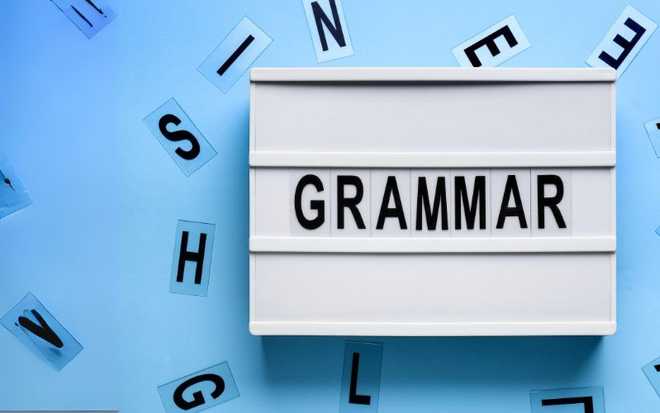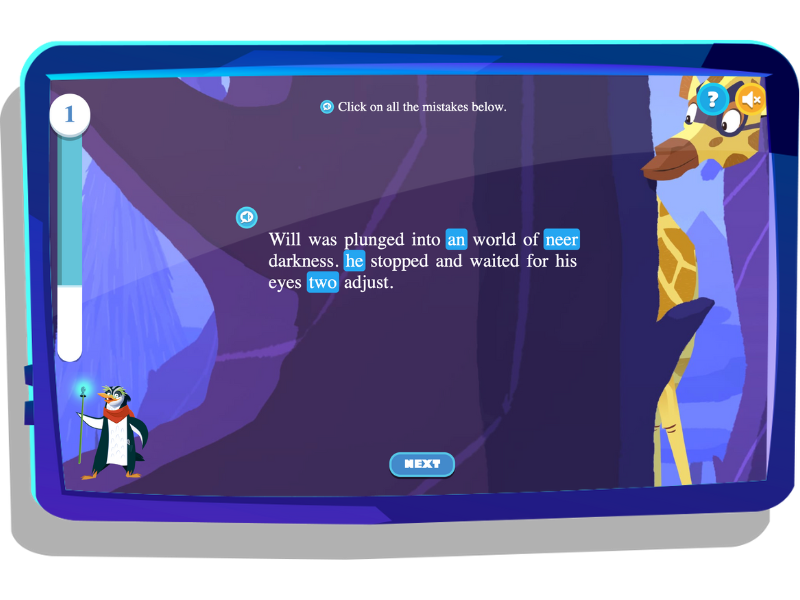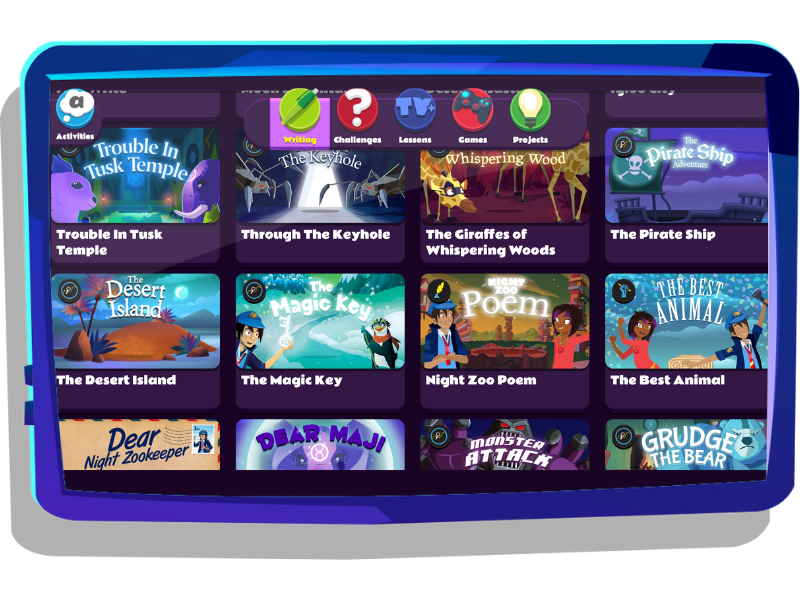Year 6 Grammar
Discover Year 6 grammar standards

Home > English > Grammar > Year 6
Grammar work at Year 6 level is mainly focussed on consolidating the skills learned earlier in your child's primary education journey. There are only a handful of new concepts that children are expected to learn at this stage.
To help your child revise these learnings, you can work through this checklist with them. You can also find links to our detailed advice on what is covered in earlier Years, by visiting the pages above!
New Skills
- Use intensive pronouns
- Vary sentence patterns and structure
- Maintain a consistency in style and tone of voice
- Use subjective, objective and possessive pronouns
- Recognize and change inappropriate shifts in pronoun use

Pronoun Case
There are three different cases of pronouns:
- Possessive pronouns show that something belongs to someone
- Subjective pronouns are pronouns that are the subject of a sentence
- Objective pronouns are pronouns that are affected by the subject of the sentence
Subjective Pronouns
- I
- you
- he
- she
- it
- we
- you
- they
- who
Example
You are very funny!
- You = subjective pronoun
Objective Pronouns
- me
- you
- him
- her
- it
- us
- you
- them
- whom
Example
Do we have to go to the park with them?
- them = objective pronoun
Possessive Pronouns
- my
- your
- his
- her
- mine
- its
- their
- our
- yours
- his
- hers
- ours
- theirs
Example
Give me back my book!
- my = possessive pronoun
Intensive Pronouns
Intensive pronouns are the same pronouns as reflexive pronouns, however their function within a sentence is different. A reflexive pronoun is essential to the meaning of a sentence. An intensive pronoun is not essential to the meaning of a sentence: it can be removed and the sentence will still make sense.
The following are all intensive pronouns:
- herself
- himself
- itself
- myself
- ourselves
- themselves
- yourself
- yourselves
Intensive pronouns are used for emphasis.
- He didn’t want to let himself down.
- Riya spoke kindly to herself.
Tone and Consistency
When deciding on the tone of voice to use in a particular article or story, your child will need to answer the following questions before beginning their writing:
- What are you writing?
- Who is your audience?
- What are their expectations?

Practice Tip
Challenge your sixth grader to write a report with a specific topic and target audience in mind. Ask them to annotate in the margins of their report and explain how they have directly addressed their audience and maintained this throughout their article.
Varying Sentence Structure
Children in Year 6 will be expected to write articles and stories that display a wealth of variety in language and sentence structure in order to maintain the interest of their audience. There are many tools that children can use to help facilitate a high level of variety and pace in their writing.
Children can try to use a range of the following sentence types throughout their articles are stories:
- Simple Sentences
- Complex Sentences
- Compound Sentences
- Compound-Complex Sentences
They can also attempt to use a range of different clauses whilst writing, including:
- Relative Clauses
- Adjective Clauses
- Adverbial Clauses
- Independent Clauses
- Noun / Pronoun Clauses
- Dependent / Subordinate Clauses
Practice Tip
Your child can develop their writing skills by using Night Zookeeper to post new articles and stories on a weekly basis. This is a safe online space where they can write about whatever interests they have whilst at the same time, practicing the skills they've been building since Year 1!

How Night Zookeeper can help

Level up your child’s learning journey before they move on to secondary school with Night Zookeeper!
Our reading & writing program will help your young learner improve their grammar skills using a range of fantastically fun activities, including word games, interactive grammar lessons and exciting challenges!
Sign up today to get a FREE 7-day trial!
Related articles


Make Reading & Writing Fantastically Fun!
- Award-winning reading & writing program for kids
- Improves spelling, grammar, punctuation & vocabulary
- Over 1,000 different learning games and activities



